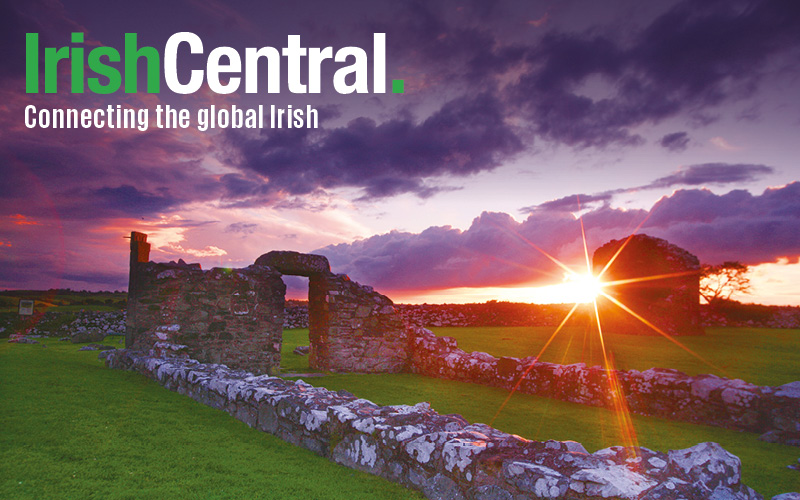The name Connolly is derived from several different roots. In Connaught and Monaghan it derives from the Gaelic O'Coingeallaigh. Both are anglicized to Connolly although the spelling form Connelly is often found in Galway. There have been several famous bearers of the name. In the early 18th century William Connolly (1660-1729) was an eminent lawyer and politician. His family from Donegal were of Gaelic extraction but conformed to Protestantism and were thus able to amass vast estates of land. William Connolly was Speaker of the Irish House of Commons from 1715 to 1729 from which he derived his name of "Speaker" Connolly. It was Connolly who built Castletown House, one of the largest and most beautiful houses of Ireland and now headquarters of the Irish Georgian Society. Another Connolly of note was James Connolly (1868-1916) who was born in Scotland of Irish parentage and came to Dublin in 1896 as a union organizer. He emigrated to America in 1903 and became an organizer for the Industrial Workers of the World (the Wobblies). He founded the Irish Socialist Federation in New York in 1907. Connolly returned to Ireland in 1910, and helped to organize the dockers and mill girls of Belfast. He was jailed for his part in the great Dublin strike of 1913 and went on hunger strike. In 1914, he formed his trade unionists into the Citizens Army, which was part of the rebel force in the 1916 Rising. Connolly, a signatory of the Proclamation of Independence, commanded the troops which occupied the GPO and was severely wounded. He was executed sitting in a chair, unable to stand for the firing squad. Connolly Station in Dublin is named in his honor. Roderic Connolly (1901-?) is a son of the above James and fought with him in the rebellion. He later followed in his father's footsteps as a labor activist. John Connolly (1794-1866) was a physician and early psychiatrist who practiced in England. He is remembered as an advocate of more humane treatment for lunatics. Among the famous holders of the name in the U.S. is "Little Mo" Connolly, the tennis star of the 1950s, and Marc Connolly (1890-1980). Born in Pennsylvania, Marc Connolly made his name on Broadway as early as 1921. As author or coauthor he was responsible for a long series of hit plays. His successful adaptation of a "Negro dialect" work into the memorable Green Pastures gained him the Pulitzer Prize in 1930. He later became a professor of drama at Yale. In the American Revolutionary Forces there were 243 soldiers named Connolly, including Captain Michael Connolly of the 2nd Regiment, New York Line, Captain Thomas Connolly of the privateer Nancy of the Massachusetts Naval Service, and Lieutenant John Connolly of the Philadelphia Militia. The name O'Connell is derived from the Gaelic O'Conaill (i.e. descendant of Conaill) and is one of the most important septs of County Kerry. Other septs are located in Galway and Derry. The Kerry branch of the family were of a military line and when dispossessed by the Cromwellians many emigrated to the European continent where they started a long association with armies of France and Austria. Muirceartach O'Connell (174?-1830) changed his name to Mortiz on entering the Austrian Army and was eventually appointed Imperial Chamberlain by the Empress Maria Theresa. The most famous holder of this name is Daniel O'Connell (1775-1847) who was born in County Kerry, and became the major agitator for the rights of Catholics of Ireland. He co-founded the Catholic Association in 1823 which became the major force for repeal of the laws against Catholics. He was an outstanding speaker and drew vast crowds of people to his political rallies. Finally, on February 4, 1830, O'Connell himself became the first Catholic in modern history to be elected to a seat in the British House of Commons. O'Connell is remembered in many ways in Ireland. The main street of Dublin and Limerick are named after him, and his home in Derrynane, County Kerry, is a museum. This family of O'Connells had many interesting members. Morgan O'Connell (1804-1885), son of Daniel, joined Devereaux's Irish Brigade which supported Simon Bolivar in South America in his struggle against Spain. He was shipwrecked on his way home but later became MP for Meath. Daniel's uncle, also Daniel O'Connell (1745?-1833) was a General of the French Army and Adjutant of the Clare Regiment. The name is sometimes shortened to Connell, although not as frequently as many other names with an "O" prefix. The distinct name McConnell is also sometimes shortened to Connell and it is often difficult for Connells to discover from which family they are derived. McConnell is usually derived from McDhomnaill (i.e. son of Daniel) rather than McConaill as might be expected. The name is particularly found in counties Antrim, Down and Tyrone. There are also a variety of less common names which are somewhat similar. Among these is (O') Connellan, which is derived from the Gaelic O'Conallain in Connaught and from O'Caoindealbhain in Munster and Leinster. This name is usually abbreviated as Conlon or Conlan. The movie In The Name of the Father, which received several Academy Award nominations in 1994, highlighted the story of Gerry Conlon, one of the Guildford Four who were unjustly imprisoned for 15 years in Britain. Owen Connellan (1800-1869) was a famous Irish scholar and was the translator of the Annals of the Four Masters. There is also (Mac) Conley which is derived from the Gaelic McConnia and is a small sept from County Offaly. The rare name McConnellogue or McConlogue is found in Donegal and is derived from the Gaelic (Mac Dhomnaill Og) - i.e. son of young Donal). McConnon, derived from MacCanaan (son of the wolf cub) is found in Co. Monaghan, and is sometimes changed to McCann.




Comments